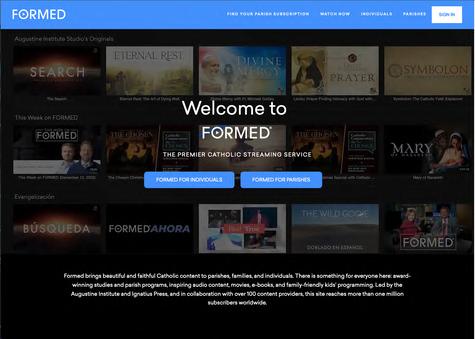









By Sister Miriam, O.P.
t Dominic's life is not as widely known as other founders from his era, and many have never heard of Gumiel de Izan. This town about twelve miles from Dominic's home in Caleruega served as a blessed waypoint in the pilgrimage of his life: here, St. Dominic studied with his uncle, the archpriest of the locality.
In the medieval era, students typically began with the traditional courses of the trivium (grammar, logic, and rhetoric) and the quadrivium (arithmetic, astronomy, music, and geometry), which aimed at ordering one's thinking rightly and forming an integrated understanding of creation. Perhaps his uncle advanced Dominic's studies further, introducing him to the philosophy and theology he would encounter at the university in Palencia.



My experience with Gumiel de Izan came in 2000 when I was blessed to be one of the youngest members of our community to go on pilgrimage to the lands of St. Dominic, and I have a vivid recollection of a mosaic there depicting Dominic studying at the side of his uncle. I remember thinking, "That's what I'm doing in the novitiate: learning from the masters so that I can go out and preach." At that time, I would have pointed to the book as the important element, but, after over two decades of teaching and learning, I realize how important the relationship between Dominic and his uncle must have been in his study. And, in our day, as we debate the intersection of technology in general and AI in particular with education, it is vital to recover the relational element. A teacher models the joy in learning, strives to embody the virtues studied, and ascertains the particular challenge for this particular student. Surely, Dominic's uncle fulfilled these tasks and thus enriched the intellectual development of his nephew
Still, the value of books in study is not to be denied: when Dominic considered the sale of his books to support those struggling with famine, it was a real sacrifice. At this moment, when I can access books of all kinds from various eras and writers too numerous to count, it might be helpful to consider the books Dominic could access. We know from the process of canonization that he carried with him a copy of the Gospel of St. Matthew and the Letters of St. Paul. These texts, along with the witness of so many holy Dominicans, point to an even more important relationship in the quest for true wisdom: the need to study the book of the Cross. What a gift it is to turn to Truth Incarnate the One who orders the universe, the Truth who sets us free and reflect with Him on the truths encountered in study!
Not surprisingly, the eminent Dominican student St. Thomas Aquinas himself addresses study. In his treatment on the cardinal virtue of temperance, he identifies studiousness as one of its potential (related but not essential) parts His explanation for this association is clear and convincing: "As stated above, it belongs to temperance to moderate the movement of the appetite, lest it tend excessively to that which is desired naturally. Now just as in respect of his corporeal nature man naturally desires the pleasures of food and sex, so, in respect of his soul, he naturally desires to know something" (Summa Theologiae, II-II, 166). This virtue not only tempers the desire to know vain and superficial details or even immoral matters but also gives one the habit of studying in a wellordered relation to one's other responsibilities It is, indeed, possible to study too much, a fault we never find in St. Dominic.
The placement of studiousness under the virtue of temperance indicates one way that study can be helpful in one's growth in holiness. Certainly, study involves the discipline of desire and the commitment to spiritual goods over physical ones Meditating on St Dominic in his years of study in Gumiel, we recognize the light he absorbed from his prayerful coursework and the purity of heart he developed in his desire to lead others to God. Yes, as his invocation in the litany to him reads, "St Dominic, Resplendent in the choir of virgins, pray for us "

BySisterEvaMarie,O.P.

O God, who made the Bishop Saint Albert great by his joining of human wisdom to divine faith, grant, we pray, that we may so adhere to the truths he taught, that through progress in learning we may come to a deeper knowledge and love of you Through our Lord Jesus Christ, your Son, who lives and reigns with you in the unity of the Holy Spirit, God, for ever and ever.
Collect for the Optional Memorial of Saint Albert the Great
S.....t. Albert was called “the Great” even while still alive. A .........native of Bavaria, he was an expert in biology, botany, physics, zoology, astronomy, geology, meteorology, medicine, and chemistry; his all-encompassing knowledge has earned him the title of “Universal Doctor.” As a young man studying at the University of Padua, Albert encountered the great Dominican friar Blessed Jordan of Saxony, who at the time was Master of the Order. First Jordan won Albert’s friendship, then the Order won his heart, and he was received as a novice in 1223
Despite his encyclopedic knowledge of the natural sciences, the young Brother Albert found the study of theology extremely difficult. Discouraged, he resolved to leave the Order and resume his secular studies. When he was at the point of departure, having leaned a ladder against the wall to facilitate his escape, the Blessed Virgin appeared to him. Ever the good Mother, she scolded him gently for failing to ask her help in his studies, bestowed on him the ability to understand theology, and vanished. Albert persevered in
his vocation and was soon renowned as one of the greatest scholars of all time, adding philosophy and theology to his list of areas of expertise His love for truth, his confidence that truth can be known, and his joy in synthesizing faith and reason are quintessentially Dominican traits.
Albert was an early pioneer in the Christian study of Aristotle. In addition to his studies, he served the Church by teaching on the faculties at the University of Paris and the University of Bologna. At Paris, he had the pleasure of instructing a stocky, soft-spoken young friar by the name of Thomas Aquinas. When Thomas’ classmates mocked his heavyset build and quiet demeanor, calling him a “dumb ox,” Albert defended his young protege with a prophecy: “You call him the dumb ox, but in his teaching he will one day produce such a bellowing that it will be heard throughout the world.” Years later, when Thomas’ writings were accused of heresy, Albert stood by him, defending his orthodoxy and fidelity to the Church
It seems that Albert the Great has been all but eclipsed by Thomas Aquinas. Yet perhaps that is what Albert himself wanted He did not study the natural world in order to control it, but because he was in love with its Creator; he did not teach in order to become famous, but so that many souls would be saved. When he saw how deeply his own students knew, loved, and preached the truth of Christ, he could only rejoice A model of Dominican study, preaching, and humility, he is the patron saint of scientists, philosophers, and students.
Litany of St Albert the Great Click Here








